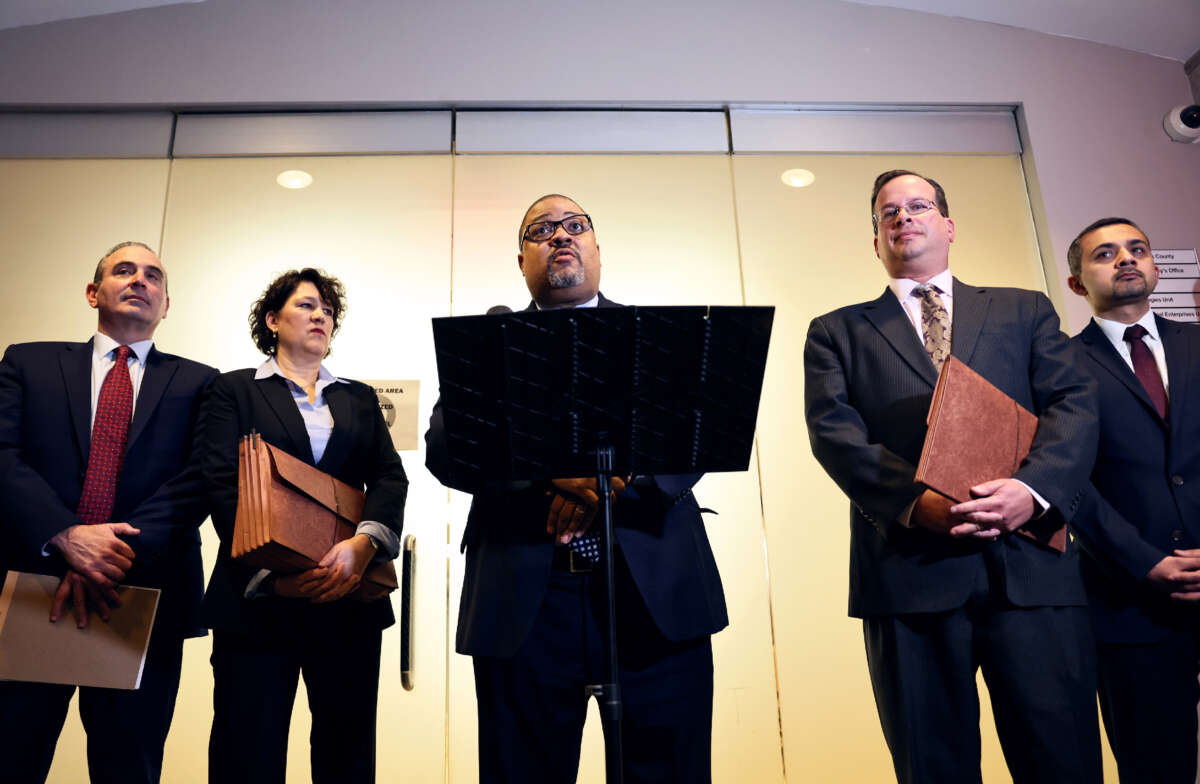Former President Donald Trump’s company was handed a $1.6 million fine by a judge on Friday as a result of the 17 convicted felonies committed by the Trump Organization as part of its 15-year tax fraud scheme — the maximum penalty that can be handed down for such a crime in New York, but one that amounts to pocket change for the multibillion dollar company.
A New York State Supreme Court judge handed down the sentence on Friday, capping a years-long investigation into the Trump Organization that ultimately found the company guilty of felony tax fraud for hiding high-end benefits to executives from the government, among other charges. Former Trump Organization Chief Financial Officer Allen Weisselberg, who helped orchestrate the scheme, was sentenced to five months in prison earlier this week after pleading guilty.
Though the sentence is a stain on Trump’s purported image as a savvy businessmaker, it is little more than that for the organization, as $1.6 million represents less than even the hidden compensation given to some individual executives, and less than the $2 million that Weisselberg himself has paid in taxes and penalties under his plea agreement — which he has already recouped in part in his $640,000 salary and $500,000 holiday bonus from the company.
In fact, the penalty is likely far less than the amount that the Trump Organization “saved” by perpetuating the scheme. Prosecutor Joshua Steinglass said in his closing argument against the company last month that the company would have paid $3.5 million more in taxes if it had properly reported Weisselberg’s compensation between 2005 and 2017.
Prosecutors in the case noted that the penalty is low for the organization and called for reforms to New York law that could actually deter companies from participating in similar schemes in the future. As it is, $1.6 million is enough that large corporations could essentially account for committing such crimes in their operating budgets.
Steinglass acknowledged the fine will have a “minimal impact” on the company while asking the judge for the maximum punishment. “The only way to effectively deter such conduct is to make it as expensive as possible,” he said.
New York District Attorney Alvin Bragg emphasized the need for reform outside of the courtroom on Friday. “I want to be very clear: we don’t think that is enough. Our laws in this state need to change in order to capture this type of decade-plus systemic, egregious fraud,” Bragg said.
Some experts say that the hit to the Trump Organization’s reputation and future business prospects will be the most impactful result of the sentencing, rather than the financial penalty.
“It spells doom for the Trump Organization —I really see it as a death knell,” Bennett Gershman, Pace University law school and former New York State anti-corruption prosecutor, told CBS earlier this week.
The conviction will make it extremely difficult for the company to obtain loans in the future, Gershman went on. “It would be implausible for any responsible lending institution, bank, insurance company or institutions that provide financial support for companies to have anything to do with the Trump Organization now,” he said.
Though Trump himself won’t face direct penalties for the conviction, the hit to his company’s reputation could be extremely costly for him, and the felonies could potentially be used as evidence by prosecutors in other cases against him. Indeed, Trump is facing fraud charges in New York Attorney General Letitia James’s lawsuit against him, currently pending, which accuses the former president and the Trump Organization of fraudulently overvaluing assets and lying to lenders to get better loan terms and avoid taxes.
Join us in defending the truth before it’s too late
The future of independent journalism is uncertain, and the consequences of losing it are too grave to ignore. To ensure Truthout remains safe, strong, and free, we need to raise $33,000 in the next 2 days. Every dollar raised goes directly toward the costs of producing news you can trust.
Please give what you can — because by supporting us with a tax-deductible donation, you’re not just preserving a source of news, you’re helping to safeguard what’s left of our democracy.
